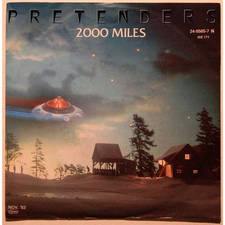Isle Of Grain: Bird Issues for Airport Plans
A new report says an area bigger than Disneyland Paris would be needed to rehome all the birds which would have their habitat destroyed by plans for a hub airport on the Isle of Grain in North Grain.
The British Trust For Ornithology estimates 300,000 birds would need to be relocated to a site of at least 3,400 hectares, to make way for the project, at a cost of up to £2billion.
The report says: "Coastal wetland habitat loss of this type has been widely demonstrated to have significant impacts on the bird populations that the habitat supports.
"We can therefore be confident that habitat loss due to airport development would have significant negative impacts on the bird population that depend on the areas lost.”
Finding suitable areas for such large-scale habitat creation will be challenging given the many competing demands for coastal land in the south east, the report says.
MP for Gillingham and Rainham, Rehman Chishti MP, said: “This report clearly shows the high risks, uncertainty and costs of putting an airport into an area which is one of the most important for waterbirds in the UK.
"It would decimate these important environmental areas with any mitigation or compensation measures requiring vast areas of land to be made available at enormous cost.
"This is another showstopper report demonstrating why this absurd scheme should never be allowed to go ahead.”
Cllr Rodney Chambers, leader of Medway Council, today challenged the Mayor of London Boris Johnson, who is supporting the airport plans, to find a suitable area to home the birds.
He said: "We’d like to know where Mr Johnson plans to home these birds as we’re not aware of a spare 3,400 acres in Medway, or anywhere else on the south east coast, and, as the report points out, creating a new habitat away from the Medway Estuary is likely to lead to an increased mortality rate amongst the birds, would take years to establish and may not even be legal.
"It is clear plans for an airport in the Thames Estuary will have a devastating effect on wildlife for years to come - we don’t believe that’s a price worth paying."

